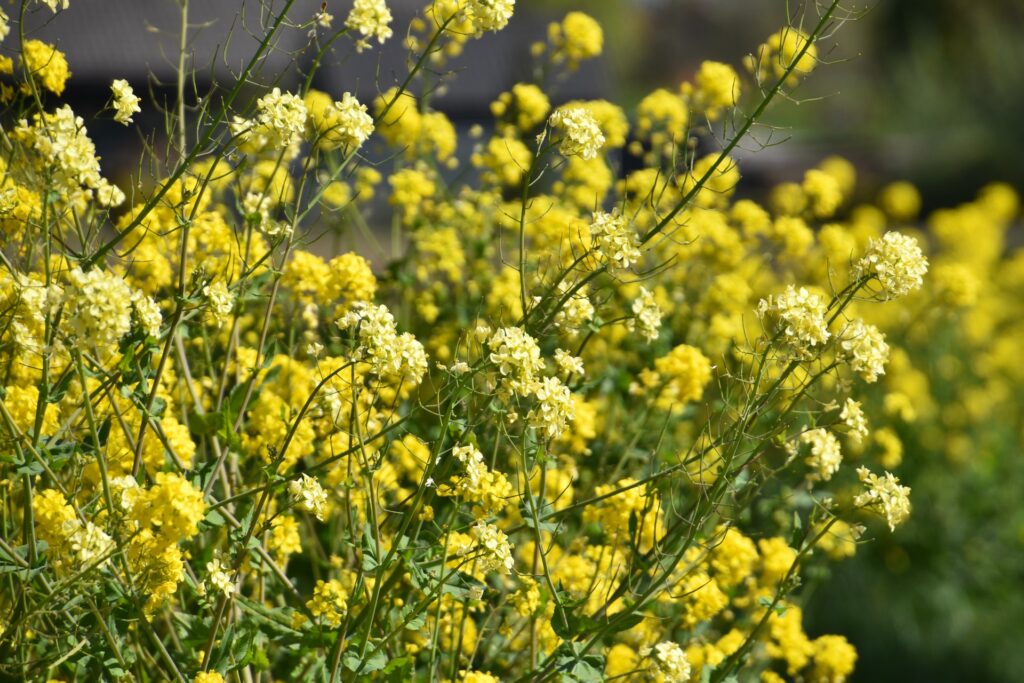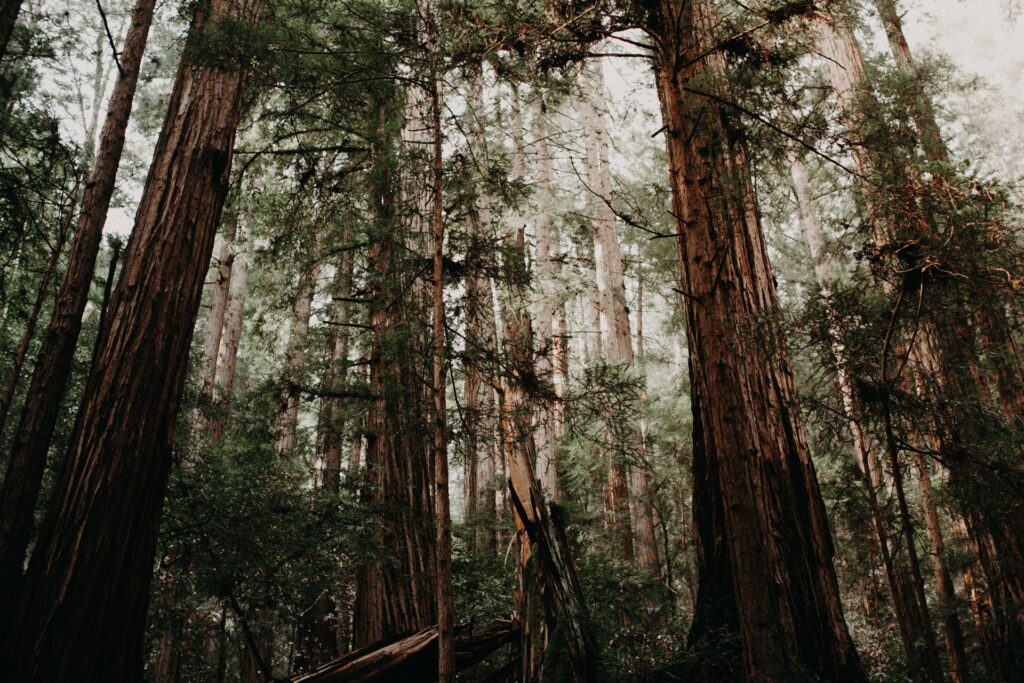I remember an article I read years ago advancing the idea that beaver dams and skyscrapers were essentially analogous structures: both are ultimately derived from raw materials fashioned in a particular manner to suit the specific needs of the species.
Both beaver dams and skyscrapers radically modify the surrounding environment.
I also remember listening to a talk (I think it was this one) by Sheikh Abdal Hakim Murad where he expounds on a verse in the Qur’an where God declares about animals, “No creature is there crawling on the earth, no bird flying with its wings, but they are nations like unto yourselves.” (Q6:38)
People are in community the way that animals are in community, and all of it is natural.
That’s my view, anyhow. The idea that there is a “man-made” world and an unspoiled “natural” world, each somehow at odds with the other, introduces a problematic binary that inadvertently puts humanity outside the schema of created things.
This is not helpful. We need to see ourselves as a part of things before we can begin to care about something other than our own propagation.
Mankind is, I believe, simply an extraordinarily successful species. We are so successful, in fact, that in establishing a human habitat specific to the needs of our species, the terrain is, in many cases, rendered quite inhospitable to others.
But this is still quite natural.
The black mustard plant (Brassica nigra) is also a very successful species. We have it all over California, effectively dominating the hillsides where it takes root, producing a brilliant shock of golden flowers each spring. But it’s not native. Its success lies in environmental modification. Once seed is introduced and germination occurs, the plant releases allelopathic chemicals that suppress the germination of other, native plants. The mustard, quite literally, takes over.
And this is true of virtually any organism with a shot at unchecked propagation. There is no “holding the door” in nature, at least nothing on any significant scale. There are a few inspiring examples of mutualism, but what we see as natural “balance” is generally the violent and selfish competition of each and every organism fighting to survive in a very crowded field with most destroying as much as they produce.
In this way, man and what he builds is every bit as natural as anything else. Man does not create anything. He does not manifest forces and materials with origins beyond what is known of the created world.
It is true, however, that he sometimes splices and mixes found components to make things that would not come about except for his interference. But it is overly simplistic to say that these synthesized materials are not natural. Because in both origin and process, everything in this example is perfectly natural. And while the end result may be something that would not naturally occur (as is the case with a number of synthesized elements), most of these “discoveries” are so unstable and ephemeral that they offer only academic value. Being fundamentally “unnatural,” these radioactive curiosities simply come apart.
But we are not the only ones to synthesize. Trees are the very symbols of wild, untamed, unspoiled nature. And they manipulate atomic structures with abandon through the process of photosynthesis, actively splitting carbon dioxide molecules to create carbon and oxygen. They need the carbon as material for growth. The oxygen is, for them, a waste product.
A waste product that much of creation benefits from, to be sure, but this is incidental. The tree is about as interested in the respiratory function of frogs as the lioness who, once sated, leaves her wrecked carcass for the scavengers. She doesn’t care about their hunger. She is simply done.
We are of nature. What we make use of is natural. And what we produce is, overwhelmingly, natural.
The cities and suburbs that we live in are, I am convinced, every bit as natural as a grove of old growth redwood. But it is nature interpreted by man. And this interpretation of nature reveals, above all else, the nature of the interpreter.
In our tall buildings, sooty smokestacks, and freeway bustle, we find that man is busy indeed, with all of our effort spent interpreting the raw materials of nature as resources for our exclusive benefit. And as a species, we are ruthlessly efficient at this with striking similarities to those aggressive cancer cells that proliferate with such violent exuberance that, in their push for complete dominance, they destroy themselves.
This is the result of man seeing himself as apart from nature, and those contemporary environmentalists who invoke a romanticized, Edenic version of “nature” only widen the chasm.
But there is an unmistakable difference in quality when we move from those natural places modified by man, and those places where his influence is less apparent.
To step into that grove of old growth redwoods is to experience a different interpretation of nature, the perspective of another species. And if we are to remain in relationship with the rest of the natural world, we must be open to these other perspectives.
Indeed, the wilderness teaches. But there can be no lesson without the humility of the student.
It’s only natural.
Leave a comment below for posterity or join us in the D&T Chautaqua Discord to discuss this post with other adventurous spirits from around the world.




alsalamalaykum
“In our tall buildings, sooty smokestacks, and freeway bustle, we find that man is busy indeed, with all of our effort spent interpreting the raw materials of nature as resources for our exclusive benefit. And as a species, we are ruthlessly efficient at this with striking similarities to those aggressive cancer cells that proliferate with such violent exuberance that, in their push for complete dominance, they destroy themselves. This is the result of man seeing himself as apart from nature, and those contemporary environmentalists who invoke a romanticized, Edenic version of “nature” only widen the chasm.”
One great irony that struck me is that some vegans, and maybe others, like to toss around the word speciesism, a term that resonates slightly with what is written here as they might argue we should see humans as but one part of nature, lacking any distinguishing or inherent extraordinary capacities. But then something strange happens, perhaps as a reaction to man’s being so “ruthlessly efficient”, they recoil slightly and you hear talk of some choosing not to have any children perhaps arising from only being able to perceive man as an “aggressive cancer.”
This is odd, of course, because it appears ironically to perpetuate the very dichotomy of separation argued against here. Does any other species in nature voluntarily choose not to procreate? Is this choice (to abstain) not an argument, in deed if not in word, in favor of seeing ones self as somehow distinct or apart from nature?
wa-salam
justin
Salam! Thank you for your comment. Yes, there is a lot of subtlety here!
I can’t speak for vegans, but I think an argument for population control might lie in the inter-species “conversation” I alluded to in my closing sentences, this idea of being open to the other perspectives/needs of creation.
The possibility of considering the needs of the rest of creation lies with man alone, I believe. And in that sense we are different. But no less “natural.” The choice to not have children may come out of a sense of stewardship that we alone are capable of.
My frustration is with any narrative that advances the idea of humanity as fundamentally destructive in a way that the rest of the natural world is not. If this is true, it’s only a question of scale. We are successful to a degree that other created things are not. That may give us the appearance of having an agenda at odds with the rest of nature, but I think quite the opposite. Any other creature would do what we have done, as any pool owner who’s run out of chlorine has undoubtedly witnessed!
Ahmed